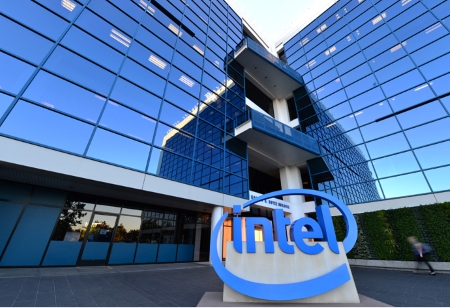
According to two sources familiar with the matter, Intel Corp is considering significantly increasing its existing $1.5 billion investment in Vietnam to expand its chip testing and packaging plant in the Southeast Asian country.
The possible move, which one source estimated could be worth $1 billion, would signal a growing role for Vietnam in the global semiconductor supply chain, as companies seek to reduce their reliance on China and Taiwan due to political risks and trade tensions with the United States.
One source said the investment was likely to be made "in the coming years" and could be worth more than $1 billion, while another said Intel was also considering alternative investments in Singapore and Malaysia, which may be preferred.
Both sources requested anonymity because the plan had not yet been made public.
When asked about the potential investment, Intel stated, "Vietnam is an important part of our global manufacturing network, but we have not announced any new investments."
Officials from Vietnam's investment and planning ministry and the provincial government of Ho Chi Minh City, where Intel already has a plant, could not be reached for comment.
On Wednesday, the Vietnam government's official portal was updated to remove a reference to Ho Chi Minh City's efforts to attract $3.3 billion in additional investment from Intel.
The chip packaging and testing facility in Vietnam's southern commercial hub is the company's largest in the world. It is estimated that the company has invested approximately $1.5 billion in it thus far.
The American chipmaker already has extra land where its plant is located, and an expansion in Vietnam would help it better manage supply disruptions caused by relying too heavily on a single country or plant, according to one of the sources, citing internal discussions.
Based on one of the sources, Intel was considering the Vietnam investment while ensuring that further expansion abroad would not be viewed as a hostile move by Washington, which is pushing to increase chip production at home.
As per officials, Vietnam is aggressively expanding its chipmaking industry, courting foreign companies in all three major segments of assembling, testing, and packaging; manufacturing with fabs; and designing.
As stated by a U.S. industry executive, the country has a lot of potential to grow quickly in chip assembling and designing, but developing chip manufacturing fabs is a long shot, with the exception of cheaper-to-build fabs for less sophisticated, bigger chips that are still in high demand, like those used in cars.
According to the executive, Vietnam's biggest opportunity is in the chip assembling sector to meet industry demand while reducing "over-concentration" of production capacity in China and Taiwan, which account for 60% of global capacity in that segment.
Designing chips requires less capital and more highly skilled workers, and Vietnam is making inroads there as well, according to the executive, with US giant Synopsys having operations there and local firms like FPT and state-owned Viettel expanding rapidly.
Samsung opened a research facility in Hanoi late last year and operates a semiconductor packaging plant in the country.
Following a global shortage of semiconductors as a result of the COVID-19 pandemic, Intel announced a plan to invest more than $7 billion in a new chip packaging and testing factory in Malaysia in late 2021.
That plant is expected to start production in 2024. In addition, Intel has testing and packaging facilities in both China and the United States.